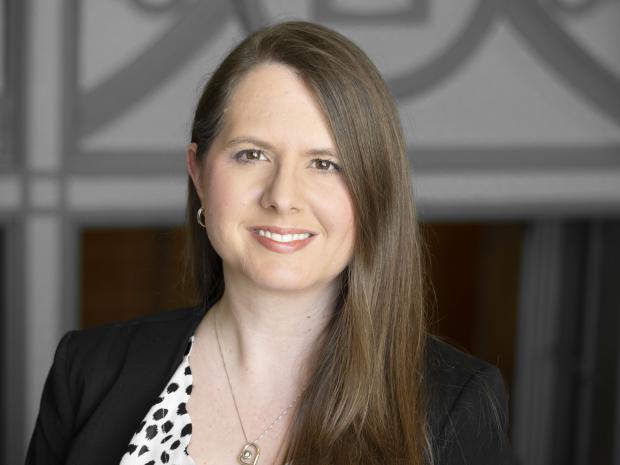Integrating Kinetics of Electrochemical Hydrogenation and Hydrogenolysis of Furfural with its Side Reactions

Speaker
Elizabeth J. Biddinger, PhD
Associate Professor of Chemical Engineering
City College of New York
Abstract
Integrating Kinetics of Electrochemical Hydrogenation and Hydrogenolysis of Furfural with its Side Reactions
Systematic As the renewable electricity contribution to the grid continues to grow and electricity prices continue to drop, electrochemically synthesizing chemicals becomes favorable. Electrochemical synthesis methods offer opportunities to perform reactions under benign reaction conditions (at or near room temperature and pressure), use less harmful or waste-generating reaction steps, and perform selective reactions. In electroreduction reactions, externally-supplied hydrogen gas that is generally needed for reduction is not required. Rather, electrons, frequently paired with the electrolyte, are the reducing agents. An example ripe for electrochemical synthesis implementation is that of the biorefinery. Once the initial biomass-derived chemicals have been formed, they need to be upgraded to more stable species for transportation and use elsewhere. Biorefineries are much smaller and more locally distributed compared to their petrochemical refinery counterparts, making complex processes more difficult to operate. There are benefits to using electrochemical processes on a skid-scale at these biorefineries. Electrochemical hydrogenation and hydrogenolysis (ECH) will be presented as an example of replacing a traditional heterogeneously-catalyzed synthesis with an electrochemical synthesis. The specific ECH reaction that will be illustrated is furfural, a biomass-derived species that is commercially produced today on the scale of ~400,000 tons/year. The desired products are furfuryl alcohol and 2-methyl furan, a resin intermediate and a fuel alternative, respectively. By tuning the reaction conditions, the desired products can be formed and the undesired products minimized. Modifications to the copper electrocatalyst can improve reaction rate and reduce fouling of the catalyst. Utilizing traditional heterogeneous catalysis techniques, the kinetics of the ECH reactions and competing side reactions can be determined. The source of the fouling and its potential dependence can also be identified.
Bio
Elizabeth J. Biddinger is an Associate Professor of Chemical Engineering at The City College of New York, the Deputy Director of the Center for Decarbonizing Chemical Manufacturing Using Sustainable Electrification (DC-MUSE) and an associate editor for ACS Sustainable Chemistry & Engineering. Her research interests are in electrochemical reaction engineering for green chemistry and energy. In particular, she is interested in the electrification of chemical processes that transform wastes or renewable resources into valuable materials, chemicals and fuels for decarbonization and sustainability, and in alternative electrolytes for battery safety and performance. Professor Biddinger has been recognized with the 2022 Ohio State College of Engineering Texnikoi Alumni Award, 2018 US Department of Energy Early Career Award, 2016-2017 Electrochemical Society - Toyota Young Investigator Fellowship, and 2014 CUNY Junior Faculty Research Award in Science and Engineering (J-FRASE) sponsored by the Sloan Foundation. Professor Biddinger has held several leadership roles with professional organizations including The Electrochemical Society (ECS) Industrial Electrochemistry & Electrochemical Engineering (IE&EE) Division Secretary/Treasurer and Student & Early Career Awards Chair, and an American Institute of Chemical Engineers (AIChE) Catalysis and Reaction Engineering Division Director. Prior to joining City College in August 2012, Prof. Biddinger was a Postdoctoral Fellow at the Georgia Institute of Technology. She received her PhD in 2010 in Chemical Engineering from The Ohio State University (Columbus, OH) and her BS in 2005 in Chemical Engineering from Ohio University (Athens, OH).

